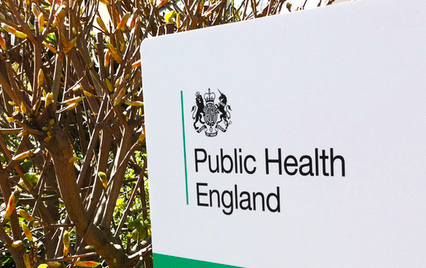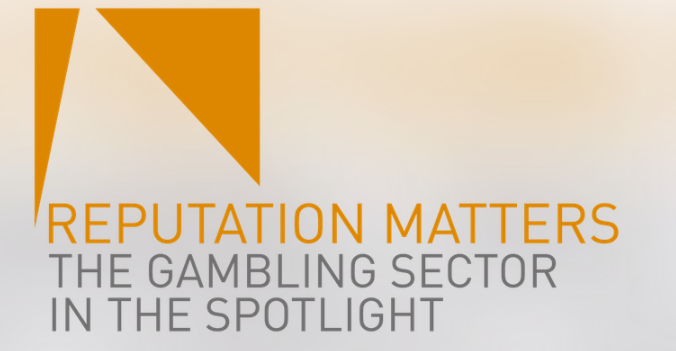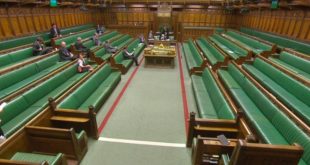
Can betting and its wider stakeholders, find unity and clarity on the urgent matter of defining ‘problem gambling as a public health issue’, or does sector leadership simply face an all too familiar political fallout?
_____________________
The debate around problem gambling is an evolving one and the arguments are becoming ever more political. In particularly, the move towards viewing gambling addiction as a public health issue is the cause of some controversy.
Such moves run the risk of playing into the hands of so-called independent researchers who ‘simply don’t like gambling’ suggests Dan Waugh, a partner at gambling sector consultancy Regulus Partners.
Waugh, who will be chairing a penal on the subject of the industry approach to problem gambling at the ‘Reputation Matters: the Gambling Sector in the Spotlight’ event on 7 November (https://www.eventbrite.co.uk/e/reputation-), says the shift to a public health debate allows anti-gambling critics the opportunity to ‘prosecute a moral crusade against the industry‘.
“It also allows the public health lobby to overstate the level of gambling-related harm by aggregating a large number of lower-level ‘harms’ (which probably aren’t really harms anyway), which in-turn underpins such assertions as ‘there is no safe level of gambling,’ he adds.
Conversely, Sarah Ramanauskas, a senior partner at Gambling Integrity, points out that if the gambling-addiction-as-a-public-health-issue approach is embraced, it could result in more support being provided for community-led initiatives that can help reduce the stigma surrounding problem gambling while encouraging people to seek out help either from professional treatment providers or self-help tools.
“I don’t think there is any quick fix,” she added. “All the major brands need to work together to demonstrate collectively the progress that is being made.”
Countering the Critics
Ramanauskas say that more use can be made of the ‘lived experience’ groups that are often led by someone who previously had or still does have a gambling addiction.
“Many of the former problems gamblers I know do not hold a grudge against the industry; their stories and experience are a hugely important way of understanding how best to help those who are or are at risk of becoming disordered gamblers,” she said. “They can also act as a counter-balance to the scare stats which seem to have taken hold.”
This is an important point as Waugh suggests that the terminology in this debate is vital, as shifting definitions and ideas around what is an actual gambling harm and who is at risk lead to some dangerous notions being disseminated.
“Perhaps the most obvious risk is that gambling-related harm becomes mistranslated as harm caused by gambling,” he continued. “Clearly, some harms do arise as a result of excessive gambling but sometimes the arrow points in the other direction.
“For example, the consequences of excessive gambling might in some instances lead to depression and anxiety; but in other cases, feelings of depression and anxiety may lead some people to seek escape in gambling… In the interests of sound policy, we need to resist the temptation to see correlation as causation.”
The New Temperance Society
The result, Waugh suggests, is a new temperance movement being born which has arguably deliberately propagated a ‘moral panic’ around gambling which, ‘bizarrely’ as he says, ‘some parts of the industry appear to be complicit in’.
“Those in the industry who describe gambling as a public health issue are putting themselves in the category of tobacco – despite fairly flimsy evidence to support such a reclassification.”
What can it do instead? Ramanauskas points out that more can be done in terms of messaging and that a stronger message than ‘most people who gamble have no problems’ is needed. “While true, it simply doesn’t have enough weight to counterbalance the media impact of stories from groups such as Gambling With Lives.”
For Harry Cott, chief executive at BeBettor, the political pressure, changing regulations and stricter enforcement by the Commission has led many in the industry to see cooperation as being paramount.
He said: “Right now, our view is that the industry’s traditional tools for dealing with problem gambling (money) and framing the debate (lawyers) are not enough to deescalate the adverse media and reframe the debate anti-gambling lobby movements.
“We feel some fresh thinking is needed and we see technology playing a leading role in this transition into a more sustainable future. Without leaning into change and exploring collaborative approaches to shared industry problems, the industry runs the risk of losing the initiative and opportunity to drive the debate.”
___________
Dan Waugh and Sarah Ramanauskas will be taking part in the panel “Health scares: the politics of responsible gambling and the evolving debate on gambling harm’ at the ‘Reputation Matters: the Gambling Sector in the Spotlight’ at the Soho Hotel, W1 on the afternoon of 7 November. Click Here for more information on the event.










